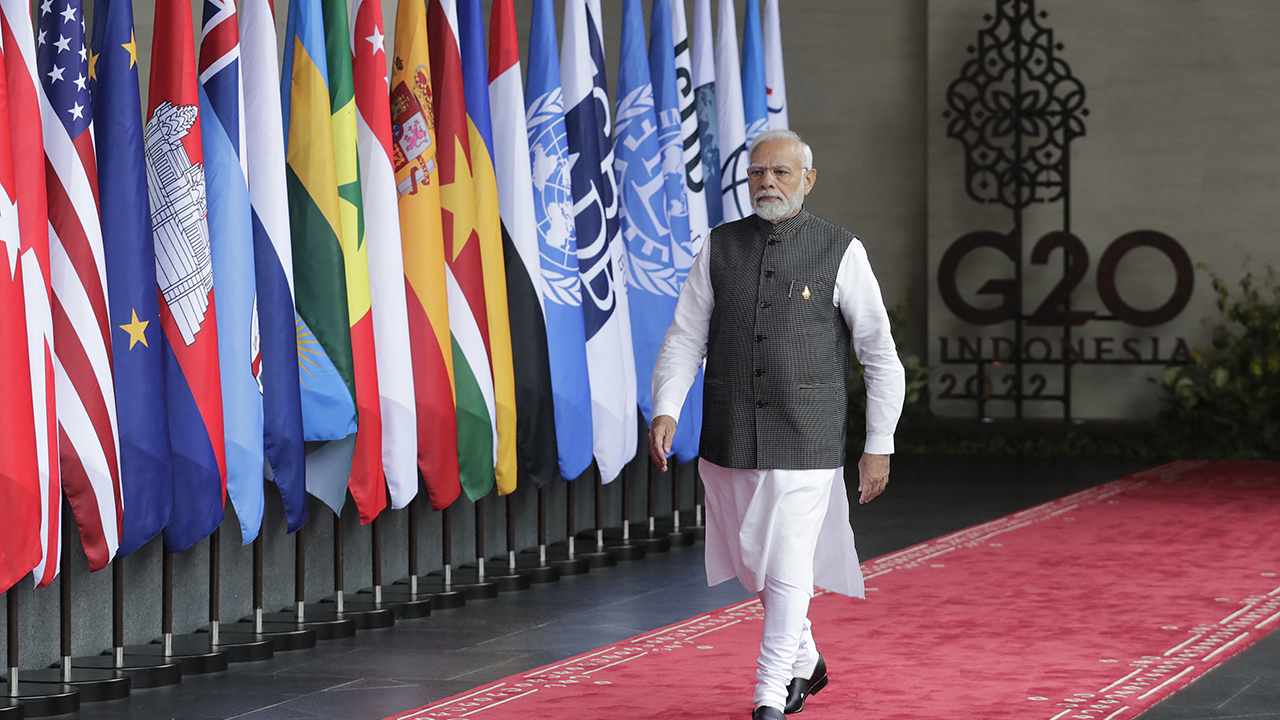Iraqi Vote Mirrors Desire for Democracy in Muslim World
A Pew Global Attitudes Project commentary
A Pew Global Attitudes Project commentary
A review of Pew Global Attitudes Project findings
A review of Pew Global Attitudes Project findings
The first publication of the Pew Research Center explores American public opinion and values, religion and public life, media, the Internet, Hispanics, the states and global opinion.
How internet users inside and outside Iraq are trying to help the democratic process.
Summary of Findings Six weeks after President Bush’s victory, the divisions that were so apparent in the election show no signs of narrowing. The public remains split over the president’s job performance, the situation in Iraq, and the state of the national economy. But Bush voters are upbeat on all three questions 92% approve […]
10:00am-11:30am Washington, D.C. Speakers: Ambassador Robert A. Seiple (Ret.), Founder and Chairman of the Board, Institute for Global Engagement; co-editor, Religion & Security Colonel Charles P. Borchini, USA (Ret.), Research Fellow, Center for Emerging Threats and Opportunities, USMC Moderator: Dr. Pauletta Otis, Senior Fellow in Religion & International Affairs, Pew Forum on Religion & Public […]
Bryan Hehir, Michael Walzer, Charles Krauthammer, Louise Richardson, and Shibley Telhami Pew Forum Dialogues on Religion & Public Life E.J. Dionne Jr., Jean Bethke Elshtain, Kayla Drogosz, Series Editors Executive Summary (.pdf) Order the book Save 20% with discount flyer How a nation “commits itself to freedom” has long been at the heart of debates […]
As wired Americans increasingly go online for political news and commentary, we find that the internet is contributing to a wider awareness of political views during this year’s campaign season.
10:00am-Noon Washington, D.C. Speakers: J. Bryan Hehir, Parker Gilbert Montgomery Professor of the Practice of Religion and Public Life, John F. Kennedy School of Government, Harvard University Charles Krauthammer, Columnist, The Washington Post* Walter Russell Mead, Henry Kissinger Senior Fellow, Council on Foreign Relations Louise Richardson, Executive Dean, Radcliffe Institute for Advanced Study, Harvard University […]
Across 12 countries, a median of 40% of adults say they have no confidence in Indian Prime Minister Narendra Modi to do the right thing regarding world affairs. About eight-in-ten Indians have a favorable view of Modi.
Majorities in most countries say China does not take into account the interests of other countries in its foreign policy, and China does not contribute to global peace and stability.
Across 24 countries, large shares have an unfavorable view of Russia and no confidence in Putin to do the right thing regarding world affairs.
Overwhelmingly, people believe the U.S. interferes in the affairs of other countries, but most also believe the U.S. contributes to peace and stability around the world. U.S. President Joe Biden receives mostly positive reviews.




